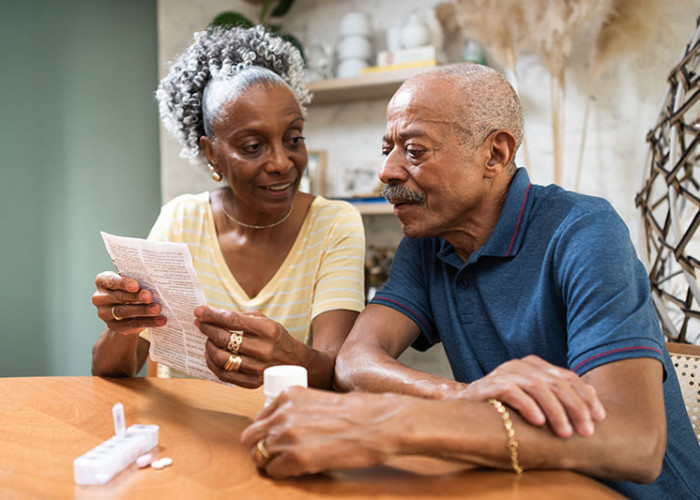Prescription Medicines
What’s the Best Flu Vaccine for Older Adults?
Learn about the best flu vaccine for older adults and make sure the seniors you love are protected.
While COVID-19 continues to dominate our overall health concerns, it’s important to keep in mind that other illnesses can be equally as dangerous, especially for older adults. Flu season is upon us, and it’s time to make sure that the seniors you love are protected. This starts with knowing the best flu vaccine for older adults.
How to Tell the Difference Between Dementia and Medication Side Effects
With so many similarities, can you tell the difference between dementia and medication side effects?
Disorientation. Confusion. Memory loss. While these are certainly hallmark symptoms of Alzheimer’s disease and other types of dementia, they may also come about from taking certain medications. Before automatically assuming an inevitable diagnosis of dementia, review the following list of prescribed medicines that can cause similar adverse effects in order to help tell the difference between dementia and medication side effects.
Top Medications for Alzheimer’s and How They Work
These top medications for Alzheimer’s are key to managing the symptoms of the disease.
The latest Alzheimer’s statistics are sobering. The disease is now the 6th leading cause of death, rising above both breast cancer and prostate cancer combined. And though deaths from many other chronic conditions, like cardiovascular disease, are decreasing, those from Alzheimer’s have increased upwards of 100%. The toll the illness takes on family caregivers is likewise shocking, with more than 16 million Americans delivering over 18 billion hours of care for a senior loved one with Alzheimer’s disease.
Though we’ve yet to find an end to Alzheimer’s disease, there are two top medications for Alzheimer’s that can help minimize some of the more predominant symptoms. If your senior loved one has been diagnosed with Alzheimer’s, there are a couple of options the doctor may … Read More »
Polypharmacy in Older Adults: Evaluating Risks and De-prescribing
Evaluate the risks of polypharmacy in older adults and keep seniors safer.
More than one out of every three 60-year-olds is currently taking five or more prescription medications, so it’s no wonder that problems occur from overmedication. Polypharmacy in older adults is defined as “…when an adverse drug effect is misinterpreted as a new medical problem – leading to the prescribing of more medication to treat the initial drug-induced symptom,” and can cause a number of additional health risks or worsen existing health conditions.
It’s a good idea for older adults and their caregivers to work together on a plan of de-prescribing. These tips can help:
Compile a list of all medications the senior is taking, including prescription meds, over-the-counter meds, and vitamins/herbal supplements, and share with the senior’s physician and pharmacist.
Request an evaluation of the medications themselves as … Read More »
Tips to Safely Dispose of Unused Medications
Learn about where to dispose of unused medications safely.
With many older adults taking multiple prescriptions, and with physicians adding and changing dosages and medications to determine the ideal solutions, it’s essential to know where to safely dispose of unused medications. There are several options:
Check labels. The medication’s label or informational literature might provide instructions on how to properly dispose of the drug. You could also consult the pharmacist for suggestions.
Participate in National Prescription Drug Take Back Day. This is the suggested method to properly dispose of unwanted medications, and is held once a year in locations across the country by the United States Department of Justice Drug Enforcement Administration. Discover the location closest to you as well as the next date for the event here.
Exercise caution before flushing medication down the toilet. Flushing medications down the toilet … Read More »












